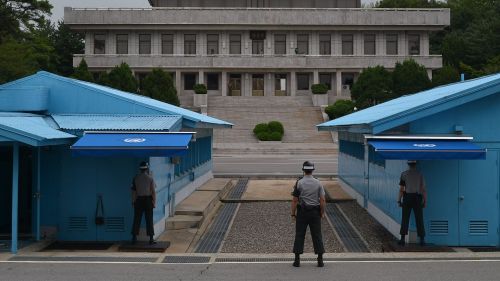North Korea Installs Speed Bumps on Path to Singapore

New statements by a North Korean diplomat may indicate that the upcoming Singapore summit is in peril of failing.
The road to Singapore for Donald Trump and Kim Jong Un was always expected to be a bumpy one. With yesterday’s statement from Kim Kye-Gwan—a high-ranking North Korean diplomat—the speed bumps were installed. The meeting is still likely to take place on June 12, but North Korea has now forcefully restated its negotiating position. Complete denuclearization will not be considered unless the process is done in tandem with the inflow of economic aid.
The Reasoning
This speed bump installment actually began several days earlier when North Korea requested a high-level meeting with South Korean counterparts at the DMZ. South Korea agreed. The meetings were scheduled to coincide with longstanding joint US-South Korea military exercises—exercises North Korea certainly knew about. Using this as a pretext, North Korea turned around and canceled the meetings it had requested and then went on the offensive.
Mr. Trump’s National Security Adviser, John Bolton, was singled out with Mr. Kim calling him repugnant. Mr. Bolton had previously said that North Korea should take Libya as its model for denuclearization. Given North Korea’s sensitivity about regime change, the comparison was not looked well upon in Pyongyang.
And so here we are, awaiting the response from Washington.
The Polling
These new developments put a dent in the theory that this was part of a PR ploy on the part of North Korea aimed at enhancing its standing around the world, and in South Korea in particular. The summit with South Korea’s Moon Jae-in was successful in those terms. Following the summit, 69 percent of South Koreans reported some level of trust in North Korea to denuclearize. In a separate poll conducted by Gallup Korea, 58 percent said they expected North Korea to fulfill the key points of the Panmunjum Declaration, and a further 65 percent said the summit improved their view of Kim Jong Un.
But those numbers are now likely to reverse, especially as South Koreans had little trust in North Korea from the start.
The summit in Singapore is still likely to take place. The photo-op for both leaders will be too enticing to pass up. But now both parties have reinforced their maximalist positions, and that may not make for successful negotiations.
Editor’s note: Joohyun Kwon contributed to this piece.

